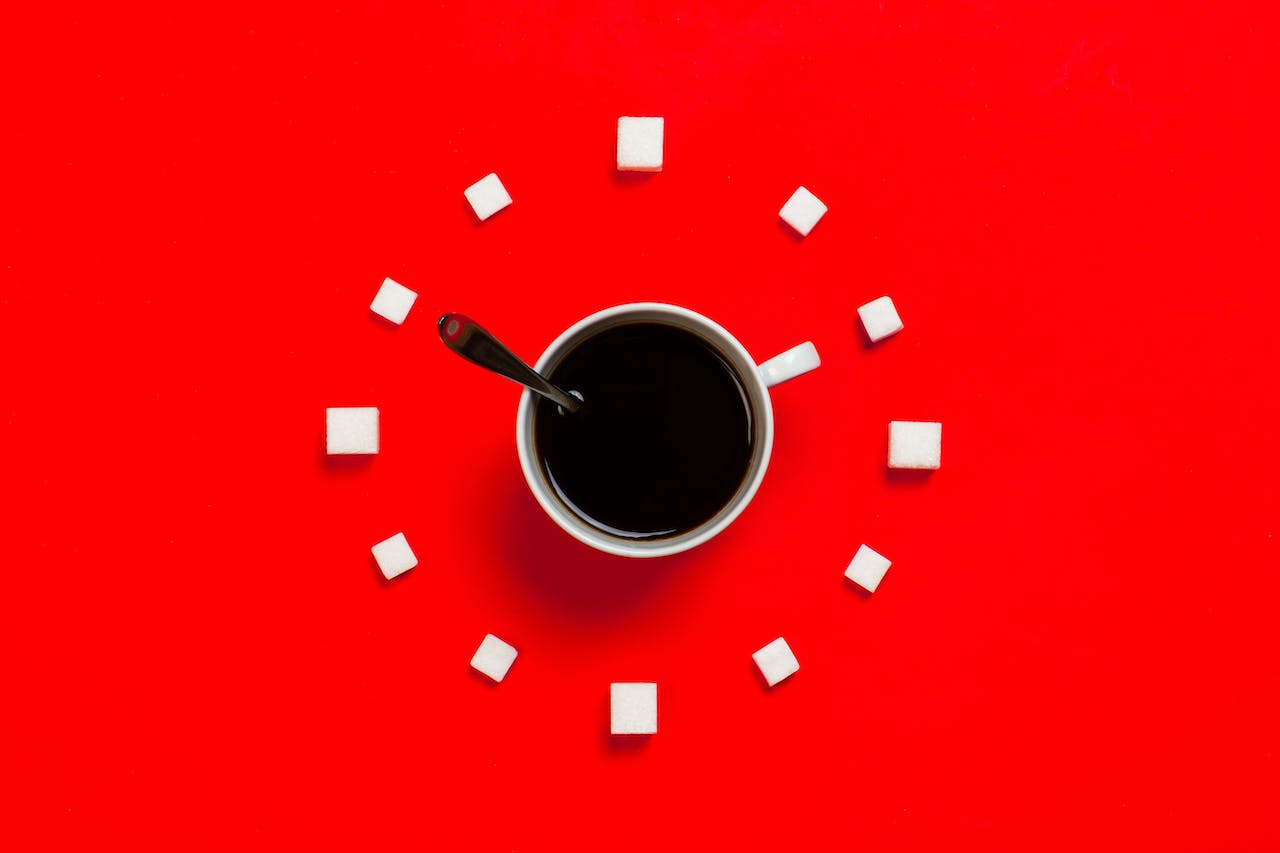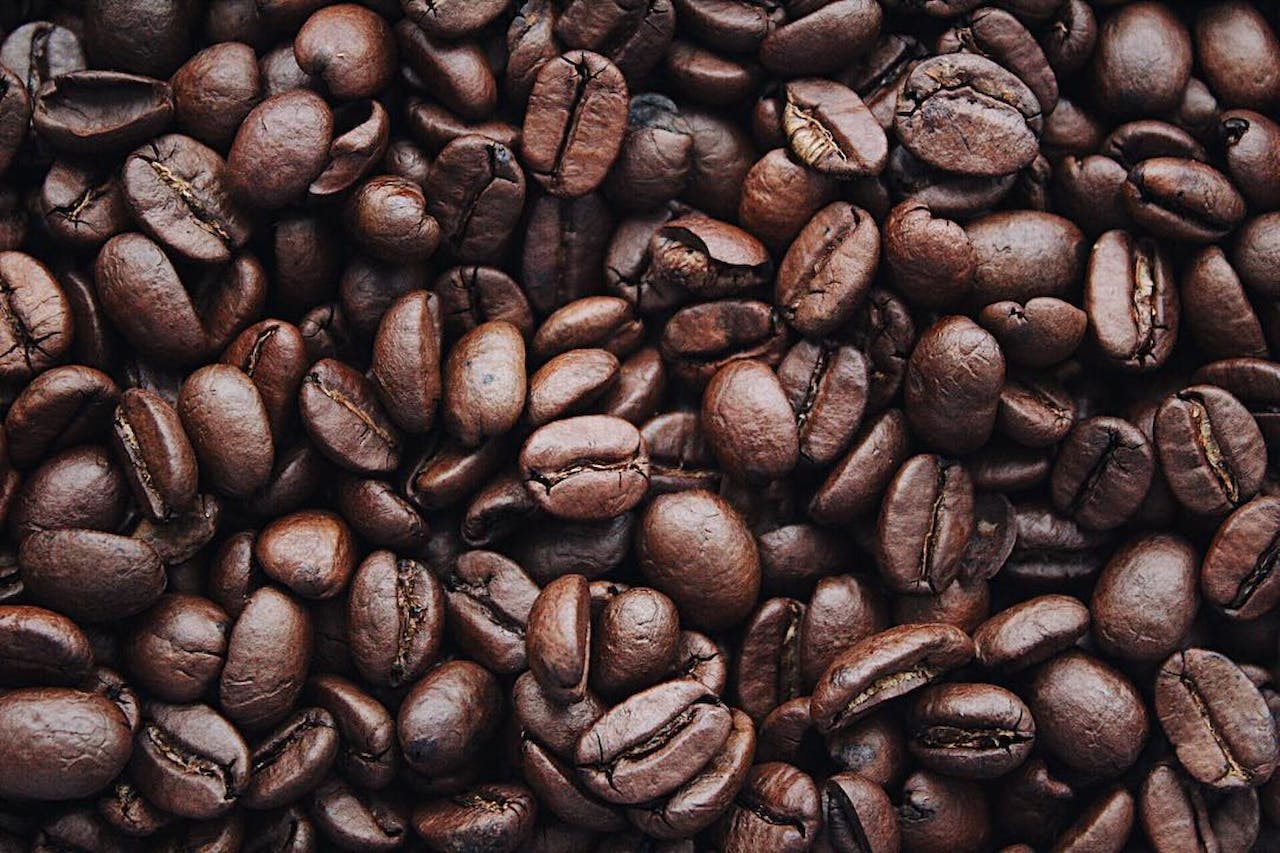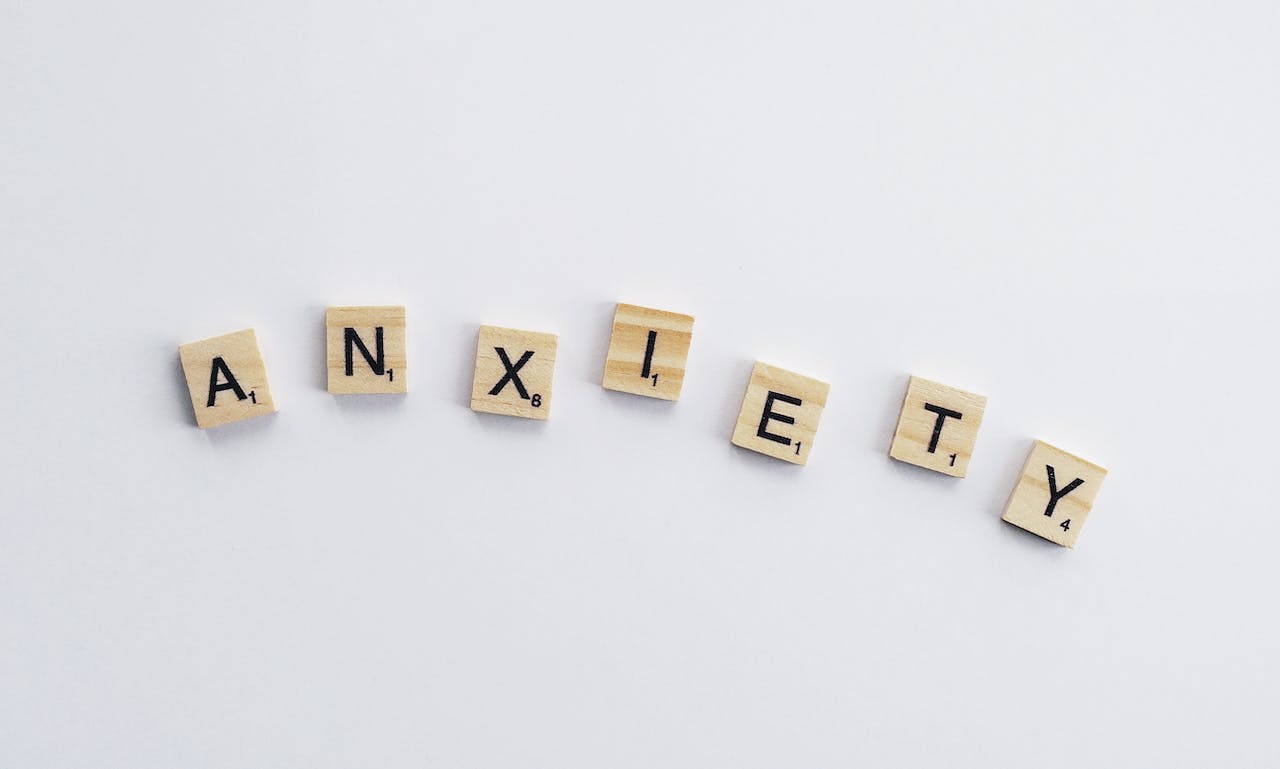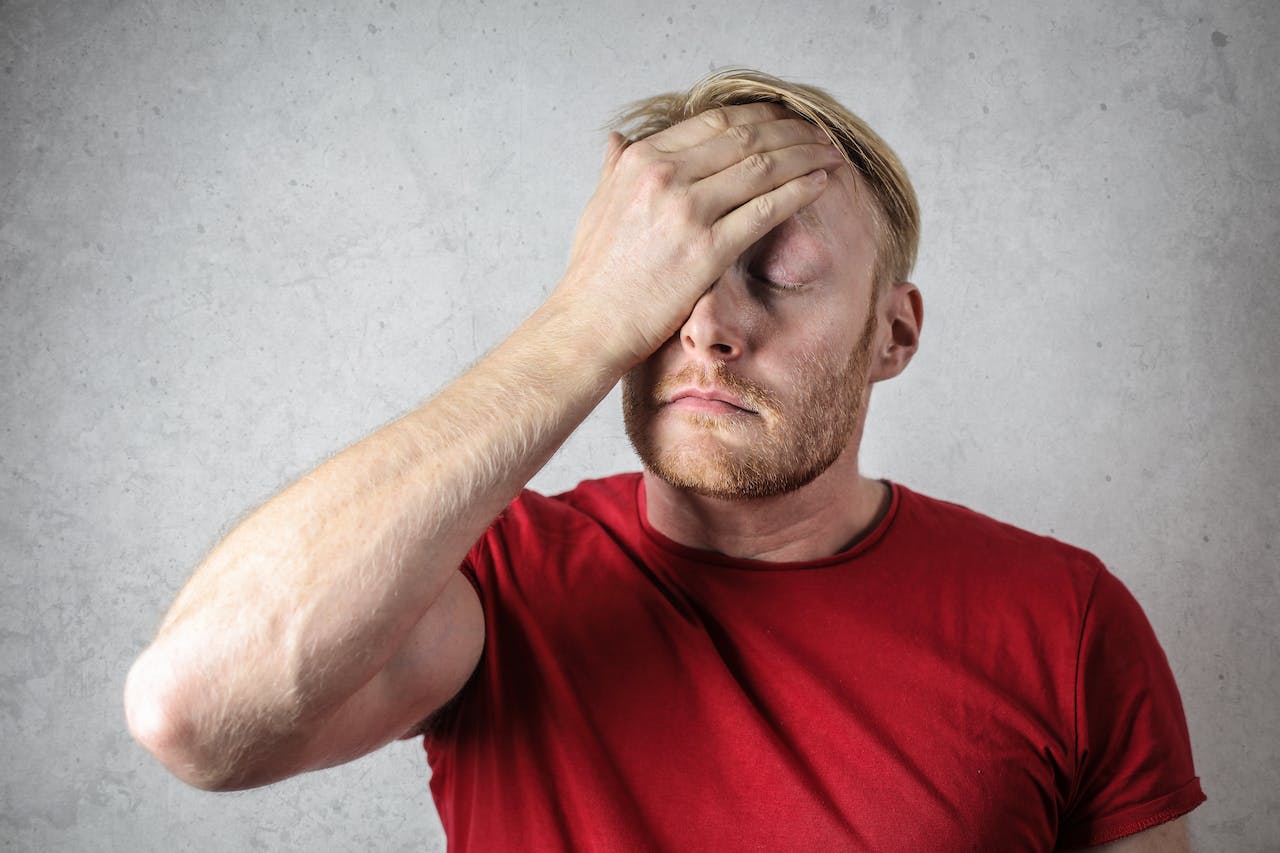What Is Caffeine Anxiety And How Can You Manage It?
Caffeine anxiety is a real struggle for many. Learn why caffeine may trigger anxiety symptoms and how to enjoy it without the stress.
Author:Suleman ShahReviewer:Han JuDec 13, 20242.5K Shares232K Views

In the bustling rhythm of modern life, caffeine has become a ubiquitous companion for many, offering a jolt of energy to kickstart the day or power through a long night of work.
However, alongside the positive effects of increased alertness and enhanced cognitive function, there exists a less-discussed facet of caffeine consumption—caffeine anxiety. This phenomenon, characterized by heightened feelings of nervousness, restlessness, and even panic, has been a subject of growing concern.
In this comprehensive exploration, we delve into the intricate interplay between caffeine and anxiety, dissecting the physiological and psychological factors that contribute to this complex relationship.
What Is Caffeine?
Caffeine is a natural stimulant. Coffee, tea, cola, chocolate, guarana, yerba mate, and 60 more goods contain it.
Caffeine stimulates the heart, muscles, CNS, and blood pressure regions. People who use caffeine regularly may not notice a rise in blood pressure. As a "water pill," caffeine stimulates urine flow.
Caffeine is mainly used for mental alertness, headaches, migraines, sports performance, memory, and obesity. It is also used for asthma, gallbladder disease, ADHD, low blood pressure, depression, and other disorders. However, most of these applications lack scientific proof.
Healthrisks exist with concentrated or pure caffeine products. People may accidentally consume large dosages. In the US, significant sales of these goods are unlawful. The NCAA allows caffeine in moderation. Urine over 15 mcg/mL is illegal.
What Is Anxiety?
To understand how coffee might impact anxiety, it is crucial first to grasp what anxiety is and the symptoms it can induce. Anxiety is a typical response to threatening situations in life, and it actually helps the body be ready to cope with such dangers.
However, extreme anxiety might cause one to worry unreasonably about mundane matters.
Anxiety often manifests with these common symptoms;
- Weakness or soreness in the chest.
- Chills.
- Concentration issues.
- Fearful emotions.
- Irritability.
- Tense muscles.
- Rapid heart rate.
- Difficulty in breathing.
- Sweating.
- Trembling.
- A stomachache.
The Neurobiology Of Caffeine Anxiety
Caffeine, a stimulant found in coffee, tea, and various energy drinks, is renowned for its ability to enhance alertness and improve cognitive function.
However, for some individuals, the consumption of caffeine is not without its drawbacks, as it can lead to heightened feelings of anxiety.
To comprehend the intricate relationship between caffeine and anxiety, it is crucial to delve into the neurobiology of this phenomenon, unraveling the role of neurotransmitters in the process.
Adenosine Receptors And The Caffeine Conundrum
At the core of caffeine's impact on neurobiology is its interaction with adenosine receptors. Adenosine, a neurotransmitter that promotes relaxation and sleepiness, binds to its receptors, signaling to the body that it is time to wind down.
Caffeine, however, acts as an adenosine receptor antagonist, meaning it competes with adenosine for binding sites. By blocking adenosine receptors, caffeine prevents the calming effects commonly induced by adenosine, leading to increased alertness and wakefulness.
This antagonistic relationship sets the stage for a cascade of neurobiological events. As adenosine is blocked, the release of other neurotransmitters, such as dopamine and norepinephrine, is heightened.
While these neurotransmitters are associated with improved mood and increased energy, an excessive surge can contribute to the overactivation of the sympathetic nervous system—a key player in the body's "fight-or-flight" response.
The Dopamine Dilemma - Pleasure Vs. Anxiety
Dopamine, often referred to as the "feel-good" neurotransmitter, plays a central role in the brain's reward system. Caffeine's ability to boost dopamine levels contributes to the pleasurable sensations and heightened mood that many individuals associate with its consumption. However, the delicate balance in the dopamine system can be disrupted, leading to a potential downside.
Excessive dopamine activity has been linked to anxiety and restlessness. In the context of caffeine consumption, this can result in an overstimulated state, pushing individuals beyond the threshold of enhanced alertness into the realm of heightened anxiety.
Understanding this dopamine dilemma provides insight into why caffeine affects individuals differently, with some experiencing euphoria and othersanxiety.
Norepinephrine - Fueling The Fight-or-Flight Response
Norepinephrine, another neurotransmitter influenced by caffeine, plays a pivotal role in the body's stress response. While moderate increases in norepinephrine contribute to heightened alertness and improved focus, an excessive release can trigger the physiological symptoms of anxiety, such as increased heart rate and rapid breathing.
The overactivation of norepinephrine, coupled with caffeine's impact on other neurotransmitters, creates a neurobiological environment conducive to anxiety. The fine line between the beneficial effects of heightened alertness and the adverse effects of anxiety is a testament to the complexity of caffeine's impact on neurobiology.
Interindividual Variability - Why Neurotransmitter Response Differs
The neurobiological response to caffeine is not uniform across individuals, highlighting the role of interindividual variability. Genetic factors play a significant role in determining how neurotransmitters respond to caffeine.
Variations in genes related to adenosine receptors, dopamine receptors, and other key players in the neurobiological cascade can influence whether an individual experiences heightened anxiety or not.
Moreover, individual sensitivity to neurotransmitters contributes to the variability in response. Some individuals may be more prone to the anxiety-inducing effects of caffeine due to inherent differences in neurotransmitter sensitivity.
Recognizing and appreciating this variability is essential in understanding why some individuals may be more susceptible to caffeine-induced anxiety than others.
Caffeine As A Trigger
Caffeine, a widely consumed stimulant celebrated for its ability to boost alertness, is not always a friend to mental well-being.
The intricate relationship between caffeine and anxiety becomes particularly pronounced when examining its role as a trigger for panic attacks.
Unmasking the nuanced dynamics of this interaction sheds light on the complexities of "caffeine anxiety" and its impact on individuals prone to panic attacks.
The Cascade Of Caffeine Anxiety In Panic Attacks
Panic attacks are characterized by intense periods of overwhelming fear, often accompanied by physical symptoms such as rapid heartbeat, shortness of breath, and a feeling of impending doom.
For individuals already grappling with anxiety disorders, caffeine can act as a catalyst, intensifying these episodes.
In the context of panic attacks, the term "caffeine anxiety" takes on a heightened significance. The stimulant properties of caffeine can lead to an overactivation of the sympathetic nervous system, triggering the release of stress hormones and amplifying the physiological symptoms associated with anxiety.
The cascade of events set in motion by caffeine consumption becomes a potent contributor to the vulnerability of individuals to panic attacks.
Sensitivity To Caffeine Anxiety - A Personalized Perspective
The impact of caffeine on panic attacks is not uniform across the population. Sensitivity to "caffeine anxiety" varies among individuals, with some experiencing heightened vulnerability to panic attacks even with modest amounts of caffeine.
Recognizing this individualized response is crucial for those navigating the delicate balance between the desire for alertness and the risk of triggering anxiety episodes.
In individuals with a predisposition to panic attacks, the arousal of the sympathetic nervous system by caffeine can push them closer to the threshold of a panic attack. The term "caffeine anxiety" encapsulates the unique blend of physiological and psychological responses that contribute to the heightened anxiety experienced by these individuals.
Unmasking The Triggers - The Intricate Dance Of Caffeine Anxiety
Unmasking the role of caffeine in panic attacks involves a close examination of triggers. "Caffeine anxiety" emerges not only from the direct physiological effects of caffeine but also from its ability to exacerbate pre-existing vulnerabilities.
Understanding the intricate dance between caffeine and anxiety disorders provides a roadmap for individuals seeking to manage their mental health.
The term "caffeine anxiety" becomes a descriptor for the specific anxieties induced by caffeine in the context of panic attacks. It encapsulates the heightened state of alertness, increased heart rate, and the rush of adrenaline that can push individuals over the edge into a full-blown panic attack. Acknowledging these triggers is a crucial step in developing strategies to mitigate the risk of panic attacks associated with caffeine consumption.
Coping With Caffeine Anxiety In Panic Disorder
For individuals with panic disorders, managing "caffeine anxiety" involves a delicate balancing act. While complete avoidance of caffeine may seem like a straightforward solution, it is not always practical or necessary.
Instead, a nuanced approach involves understanding individual tolerances and recognizing the threshold at which caffeine transitions from a performance enhancer to an anxiety trigger.
Moreover, individuals with panic disorders can benefit from exploring alternative strategies to cope with anxiety. From mindfulness techniques to relaxation exercises, building a toolkit for managing anxiety becomes essential.
This holistic approach acknowledges the role of "caffeine anxiety" in panic attacks while empowering individuals to make informed decisions about their caffeine consumption.
Effects Of Caffeine Anxiety
Caffeine anxiety, a phenomenon characterized by heightened feelings of nervousness, restlessness, and even panic, can have various effects on both the mind and body. Understanding these effects is crucial for individuals who may be susceptible to anxiety or are seeking to manage their overall well-being. Here's an exploration of the effects of caffeine anxiety -
Psychological Impact
- Increased Restlessness - Caffeine, as a central nervous system stimulant, can lead to heightened levels of restlessness. Individuals experiencing caffeine anxiety may find it challenging to sit still or focus on tasks.
- Heightened Nervousness- The stimulant properties of caffeine can amplify feelings of nervousness, leading to an overall sense of unease and discomfort.
- Panic Attacks - In susceptible individuals, caffeine can act as a trigger for panic attacks. The surge in arousal and the fight-or-flight response may contribute to the onset of intense anxiety episodes.
Cognitive Effects
- Impaired Concentration- While caffeine is often consumed to enhance alertness and focus, in the context of anxiety, it can paradoxically impair concentration. The racing thoughts and heightened arousal may interfere with cognitive performance.
- Increased Worrying - Caffeine anxiety can contribute to an increase in worrying and rumination. Individuals may find themselves fixating on negative thoughts, further exacerbating feelings of anxiety.
Physiological Responses
- Elevated Heart Rate- One of the physiological hallmarks of caffeine anxiety is an increased heart rate. The stimulant effects of caffeine can lead to a surge in adrenaline, causing the heart to beat faster.
- Trembling or Shaking- Some individuals may experience physical symptoms such as trembling or shaking, reflecting the heightened state of arousal induced by caffeine anxiety.
- Sweating - Excessive sweating is a typical physiological response to anxiety, and caffeine can contribute to the activation of the sweat response in individuals experiencing heightened anxiety.
Sleep Disturbances
- Insomnia- Caffeine's stimulant effects can interfere with sleep patterns, leading to difficulties in falling asleep or maintaining restful sleep. It can create a cycle of fatigue and heightened anxiety.
- Disrupted Sleep Architecture- Even if individuals manage to fall asleep, the quality of sleep may be compromised. Caffeine-induced disturbances in sleep architecture can contribute to overall sleep dissatisfaction.
Emotional Well-being
- Exacerbation of Existing Anxiety Disorders - For individuals with pre-existing anxiety disorders, caffeine anxiety can exacerbate symptoms. It may act as a potent trigger, intensifying the overall burden of managing anxiety.
- Impact on Mood - While some individuals may experience a temporary lift in mood with caffeine, excessive consumption or sensitivity can lead to mood swings and irritability.
Long-Term Considerations
- Caffeine Dependence - Chronic consumption of high levels of caffeine can lead to dependence. Individuals may find themselves needing increasing amounts of caffeine to achieve the same stimulating effects, contributing to a cycle of consumption and potential anxiety.
- Tolerance and Sensitization- The long-term effects of caffeine anxiety can involve the development of tolerance or, paradoxically, increased sensitivity. This complexity underscores the need for a mindful and individualized approach to caffeine consumption.
Unlocking The Versatility Of Caffeine
Caffeine, a naturally occurring stimulant found in coffee, tea, and various beverages, is renowned for its ability to provide a quick boost in alertness and energy.
While the association between caffeine and heightened alertness is well-established, it is essential to explore the diverse uses of caffeine beyond its stimulating effects.
Enhanced Cognitive Function - The Power Of Mental Acuity
Caffeine's most celebrated use is as a cognitive enhancer. By blocking adenosine receptors in the brain, caffeine prevents the onset of drowsiness and promotes wakefulness.
This property makes caffeine a valuable ally in enhancing concentration, focus, and overall mental acuity. Whether facing a demanding work project or preparing for an exam, individuals often turn to caffeine to temporarily heighten cognitive function.
However, it is crucial to acknowledge that while caffeine can enhance cognitive performance for many, excessive consumption or sensitivity can lead to the flip side of the coin—"caffeine anxiety." Some individuals may experience restlessness and nervousness, highlighting the delicate balance between the cognitive benefits and potential drawbacks associated with caffeine.
Physical Endurance - Energizing The Body
Beyond its impact on mental alertness, caffeine is widely recognized for its role in boosting physical endurance. Athletes, both amateur and professional, often leverage caffeine's stimulating effects to enhance their performance. Caffeine promotes the release of adrenaline, mobilizing the body's energy stores and allowing for increased stamina during physical activities.
Yet, as with any powerful stimulant, the potential for "caffeine anxiety" looms. The heightened arousal and increased heart rate that contribute to improved physical performance can, in some cases, tip the balance into feelings of restlessness and discomfort.
Striking a balance in caffeine consumption becomes essential to reap the benefits of enhanced physical endurance without succumbing to anxiety-related symptoms.
Mood Elevation - A Temporary Lift In Spirits
Caffeine can influence mood by blocking adenosine receptors and increasing the release of neurotransmitters like dopamine. Many individuals turn to caffeinated beverages for a quick pick-me-up during moments of fatigue or low energy. The temporary elevation in mood can contribute to a sense of well-being and increased motivation.
However, it is crucial to approach caffeine with awareness, as excessive consumption or sensitivity can lead to mood swings and irritability. The term "caffeine anxiety" encapsulates the potential for heightened nervousness and restlessness that can accompany the mood-enhancing effects of caffeine.
Headache Relief - Alleviating Pain Sensations
Caffeine is a common component in over-the-counter pain relievers for a reason—it can enhance the effectiveness of certain medications in alleviating headaches. By constricting blood vessels and increasing blood flow, caffeine complements the pain-relieving properties of analgesic medications.
This dual action makes caffeine a valuable ingredient in managing tension headaches and migraines.
Despite its efficacy in headache relief, individuals prone to "caffeine anxiety" should approach this use of caffeine cautiously. The stimulating effects that contribute to pain relief can, in turn, trigger anxiety-related symptoms in susceptible individuals.
Understanding And Lowering Caffeine Side Effects
Caffeine, a widely consumed stimulant, offers various benefits, from heightened alertness to improved physical performance.
However, for some individuals, the side effects of caffeine, including restlessness, nervousness, and potential anxiety, can overshadow its positive attributes. Exploring strategies to lower caffeine side effects becomes crucial for those seeking to enjoy the benefits of caffeine without succumbing to its drawbacks.
Moderation - Finding The Right Balance
One of the most effective ways to lower caffeine side effects is to practice moderation in consumption. Recognizing individual tolerance levels and establishing personal limits can help prevent the overstimulation of the nervous system.
By moderating caffeine intake, individuals can mitigate the risk of restlessness and anxiety-related symptoms while still enjoying the cognitive and physical benefits of caffeine.
Mindful Consumption - Timing Matters
The timing of caffeine consumption plays a pivotal role in its impact on the body. Consuming caffeine earlier in the day allows for its effects to align with natural circadian rhythms, reducing the risk of disrupting sleep patterns.
Additionally, avoiding caffeine in the late afternoon and evening can contribute to lower anxiety levels, as the stimulant's effects may interfere with the body's natural wind-down process.
Hydration - A Balancing Act
Dehydration can exacerbate the side effects of caffeine, including headaches and increased heart rate. To counteract this, ensuring adequate hydration is essential. Pairing caffeine consumption with water helps maintain hydration levels and may alleviate some of the physical symptoms associated with excessive caffeine intake.
Gradual Reduction - Tapering Off Safely
For individuals looking to lower their caffeine intake, a gradual reduction approach can be practical. Abruptly cutting off caffeine consumption can lead to withdrawal symptoms, including increased anxiety.
Instead, tapering off slowly allows the body to adjust, minimizing the risk of side effects and withdrawal-related anxiety.
Choosing Low-Caffeine Alternatives
Low-caffeine or caffeine-free alternatives can be a practical strategy for those sensitive to the stimulant's effects. Opting for decaffeinated coffee or tea, herbal infusions, or caffeine-free beverages allows individuals to enjoy the social and sensory aspects of a warm drink without exposing themselves to the potential side effects of caffeine.
Pairing With L-Theanine - Enhancing Relaxation
L-Theanine, an amino acid found in tea, has been shown to have calming effects that complement the stimulating properties of caffeine. Pairing caffeine with L-Theanine, often found in green tea, can enhance relaxation and reduce the likelihood of experiencing "caffeine anxiety." This synergy demonstrates how thoughtful combinations of compounds can mitigate adverse effects.
Prioritizing Sleep Hygiene - Breaking The Cycle
Addressing sleep patterns is crucial in lowering caffeine side effects, as disrupted sleep can contribute to heightened anxiety. Establishing a consistent sleep routine, creating a calming bedtime environment, and avoiding caffeine in the hours leading up to bedtime contribute to improved sleep hygiene. Breaking the cycle of caffeine-induced sleep disturbances can lead to a reduction in overall anxiety levels.
Caffeine Anxiety - FAQs
Does Caffeine Cause Anxiety?
The FDA warns that caffeine above 400 mg per day (four to five cups of coffee) may exacerbate anxiety and panic episodes in sensitive persons.
Can Caffeine Cause Panic Attacks?
While caffeine and anxiety have similar side effects, caffeine doesn't cause anxiety. Coffee might worsen anxiety. Caffeine enhances panic attacks and anxiety in panic disorder patients, according to research.
Can Giving Up Caffeine Cure Anxiety?
It increases anxiety, heart rate, palpitations, and panic episodes by releasing hormones. It is worse for stress and anxiety-prone people. It might worsen symptoms.
What Are Some Strategies To Mitigate Caffeine Anxiety?
Mitigating caffeine anxiety involves practicing moderation in caffeine consumption, being mindful of timing, staying hydrated, considering gradual reduction if needed, exploring low-caffeine alternatives, and addressing overall sleep hygiene.
Can Caffeine Anxiety Affect Sleep Patterns?
Yes, caffeine anxiety can disrupt sleep patterns. The stimulant properties of caffeine may delay the onset of sleep and reduce overall sleep duration, contributing to a cycle of fatigue and heightened anxiety.
Considering All This
In the complex dance between caffeine and anxiety, it is evident that moderation and self-awareness are paramount. Caffeine anxiety, a nuanced interplay of neurotransmitters, genetics, and individual sensitivities, underscores the importance of recognizing the diverse ways in which caffeine affects mental well-being.
From triggering panic attacks to disrupting sleep patterns, caffeine's impact is multifaceted and deeply intertwined with the intricate fabric of our physiological and psychological makeup.
As we navigate the caffeinated landscape, understanding our limits, embracing mindful consumption, and prioritizing sleep emerge as essential components of a balanced approach to enjoying the stimulating effects of caffeine without succumbing to its potential pitfalls.

Suleman Shah
Author
Suleman Shah is a researcher and freelance writer. As a researcher, he has worked with MNS University of Agriculture, Multan (Pakistan) and Texas A & M University (USA). He regularly writes science articles and blogs for science news website immersse.com and open access publishers OA Publishing London and Scientific Times. He loves to keep himself updated on scientific developments and convert these developments into everyday language to update the readers about the developments in the scientific era. His primary research focus is Plant sciences, and he contributed to this field by publishing his research in scientific journals and presenting his work at many Conferences.
Shah graduated from the University of Agriculture Faisalabad (Pakistan) and started his professional carrier with Jaffer Agro Services and later with the Agriculture Department of the Government of Pakistan. His research interest compelled and attracted him to proceed with his carrier in Plant sciences research. So, he started his Ph.D. in Soil Science at MNS University of Agriculture Multan (Pakistan). Later, he started working as a visiting scholar with Texas A&M University (USA).
Shah’s experience with big Open Excess publishers like Springers, Frontiers, MDPI, etc., testified to his belief in Open Access as a barrier-removing mechanism between researchers and the readers of their research. Shah believes that Open Access is revolutionizing the publication process and benefitting research in all fields.

Han Ju
Reviewer
Hello! I'm Han Ju, the heart behind World Wide Journals. My life is a unique tapestry woven from the threads of news, spirituality, and science, enriched by melodies from my guitar. Raised amidst tales of the ancient and the arcane, I developed a keen eye for the stories that truly matter. Through my work, I seek to bridge the seen with the unseen, marrying the rigor of science with the depth of spirituality.
Each article at World Wide Journals is a piece of this ongoing quest, blending analysis with personal reflection. Whether exploring quantum frontiers or strumming chords under the stars, my aim is to inspire and provoke thought, inviting you into a world where every discovery is a note in the grand symphony of existence.
Welcome aboard this journey of insight and exploration, where curiosity leads and music guides.
Latest Articles
Popular Articles





